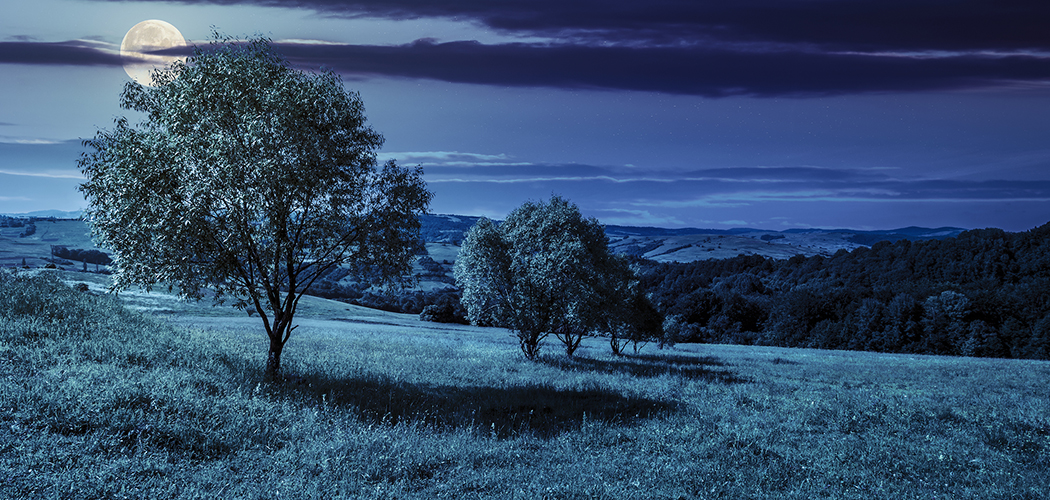[title subtitle=”words: Marla Cantrell”][/title]
Julie feels it, the pulsing heat that rises above the blacktop road, shimmers through the leaves of the maple tree in her front yard. She holds onto the feeling even as the day ends, as the sun droops and the moon lifts and the air cools. The sun has hands, a body, a mouth. The sun is her lover Wyeth, she is sure, although she doesn’t say it aloud. She knows how that sounds.
When Wyeth shows up at her door after midnight, his skin is always warm. Julie wonders if he drives his pickup with the windows down in summer. With his heater on high in winter. He drives across the hayfield behind her house. Cuts off the lights, feels his way to her bright white house. She is not the kind of woman who typically entertains men in secret. But for the past six months, she has.
“We ought to go out, see a movie, go dancing,” she said, early on, two weeks after that first night when they’d met at the bonfire. Christmas lights had been strung in the oak trees around them. Tinsel hanging like moss.
“I work a lot,” Wyeth had said, and something about the way he’d said it made whatever she was going to say next die in her throat.
Julie works more than he does. Six days a week. But her job is at home, making sales calls for a siding company, asking people to cover the skin of their houses with vinyl made to look like real wood. She’s surprised at how many of her friends think she doesn’t work at all because she doesn’t punch a time clock or work the register at Walmart.
Tonight, when Wyeth shows up, he’s so quiet she doesn’t hear the purr of his pickup’s motor. He taps her front door, the sound like summer rain just starting. Sometime last month, she quit turning the porch light on, and now as she looks at him through the living room window, she sees how he holds his own glow. He never needed the light at all.
His jeans are worn at the knee, raveled at the hem. He wears a tight T-shirt, a wide leather band on his left wrist. The twine around his neck holds an eagle’s feather. When he lifts her up, she feels airy, perfect.
“I thought about you all day,” he says, his mouth so near her ear she feels the words as much as hears them. Wyeth smells like cotton sheets dried on the clothesline.
Julie thinks about him non-stop every day but doesn’t say so. “It’s hot tonight,” she says, and he groans. She thinks suddenly of her mother who stands outside jewelry stores, dreaming, who takes pills for her nerves. She thinks of her sister who teaches Sunday school and believes the world is ending. Of her father who wishes he’d had a son.
Wyeth kisses her, says, “Isn’t it always hot?” This is flirting, the kind of intimate banter Julie was unused to not so long ago. He is almost smiling. She takes his hand and kisses his palm. By the time he leaves, the sun is rising. He stands in the doorway, blocking every bit of its light, or maybe soaking it in.
On the phone the next day, she’s talking to a Mrs. Caine, who sounds ancient and lives in a wooden house that will be wrapped in vinyl siding in a week if her credit goes through. The woman says, “My daddy built this house,” and when Julie doesn’t reply, she says, “with his own two hands.”
“The siding will only improve it,” Julie says, and Mrs. Caine says, “I’ve done the best I could.”
Julie knows not to offend a potential customer. “I’m sure you’ve done a wonderful job with your family home,” she says.
“I have not,” Mrs. Caine says. “If I had, I wouldn’t be talking
to you.”
Julie has a mutt named Happy that lays at her feet. She rubs him with her bare foot, feeling his fur. “My parents live in a manufactured home,” Julie says. “It’ll crumble to the ground someday.”
“Where do you live?” Mrs. Caine asks.
“I rent a place just down the road from them. I have dinner there two or three times a week. Sometimes my father gets up halfway through the meal and heads to his shed.”
“What’s he do there?”
“I have no idea.”
Mrs. Caine exhales so loud it’s a whistle. “If your mama left y’all sitting at the table alone, I’ll bet there’d be hell to pay. But a man, that’s a whole different thing.”
Julie can almost see her mother rising to scrape her father’s plate into the trash. “I never thought about it.”
“My husband died a few years back,” Mrs. Caine says. “COPD and about a hundred other things. That first stretch of time was like getting thrown onto a stage and told to act without a script, but bit by bit I got my life back. Found things I liked to do, crosswords and such. I took a trip by myself on the bus all the way to New Orleans. Scared me to death, but I did it.”
“My condolences, Mrs. Caine.”
“Honey, we’re all going to die. Had a friend pass just last week. Well, a former friend. We’d had a falling out years ago. That’s a situation, I’ll tell you that. How do you mourn a former friend?”
“I have no idea.”
“I sent flowers, but nothing too gaudy. The next morning, I got up and made eggs and toast like I have nearly every day of my adult life.”
“What was her name?”
Mrs. Caine grows quiet, as if she’s considering. “Wasn’t a her, hon. It was a man named Walker.”
Happy lifts his head at the same time Julie sits straighter in her chair.
“I was a telephone operator back when there were such things,” Mrs. Caine says. “Walker was a lineman for the same company. He was good looking. Got everything he wanted. The last time we were together, we’d got in his truck to chase the total eclipse of the sun. This was back in the 1970s. There were places you could go to see the sun go dark for just a minute. But for us to see it, we had to travel to Oregon. And because we had to travel, we had to spend nights in motels.”
Julie could hear the faucet running as Mrs. Caine talked. “I knew Mama and Daddy would have a fit, so I didn’t tell them.”
“What happened on the trip?”
“The moon covered the sun, and the world was never the same,” Mrs. Caine says.
Julie can feel her heart pump. “How could the moon crossing the sun change it all?”
Outside Julie’s house, the daylilies are blooming, row after row of orange. Mrs. Caine says, “Well, for one thing, Walker cried while he watched it. I like my men strong. I had a daddy who had lived through a war and made it sound like a picnic. I had a mother who lived through the Great Depression and told funny stories about it. I guess I expected more. And of course, then I came home sullied if you know what I mean.” She laughed, “I was the biggest story in this small town of Natural Dam for years. I was the girl mamas warned their daughters not to become.”
Mrs. Caine’s voice breaks. “I learned that a man who can cry is better than one who can’t. I learned it, but by then it was too late to do anything about it.”
The air conditioning in Julie’s house kicks on. “I see a man who comes to my house late at night. I don’t know what we’re doing exactly.”
“Walker later moved to Tennessee and married a woman who looked a lot like me,” Mrs. Caine says. “When my husband took me to Dollywood, I spent half an hour holed up in the bathroom with the phone book, looking for his number.”
“What would you have done if you’d found it?”
“Not a dang thing. Despite evidence to the contrary, I was a good woman.”
Julie has been walking through her house, her phone to her ear, and now she’s in the kitchen, looking out the window at the hayfield where Wyeth’s truck has made a path over the past half year.
That night, when Wyeth shows up, he has a newspaper with him. A total eclipse of the sun, running from coast to coast, but visible in only certain parts of the United States, is happening on August 21. “Nothing this big since 1918,” he says, and Julie starts to mention what happened to Mrs. Caine in the seventies, but decides against it, suddenly protective of the story.
He spreads a map on Julie’s kitchen counter and shows her the route they’ll take from Arkansas to Jefferson City, Missouri to see it. It will require an overnight stay, and already he’s booked a room for them at the Lake of the Ozarks.
“You’ve never even taken me to dinner,” Julie says, and Wyeth shrugs as if to shake off the complaint. She hopes to protest more, but he leans down to kiss her and she feels the heat of him, sees the way light bounces off the golden hairs of his arms, off the sun-streaked hair that falls across his neck.
In Missouri, night will cover day. “We’ll have to take precautions,” he says. “There are ways to see an eclipse, but you can’t look directly at it.”
Julie thinks of her own precautions and involuntarily covers her heart with both hands. The sun can save you, or it can destroy you. She holds both these truths together, weighing them. Once, she stayed too long at the public pool and her skin blistered. Once, she lay on the wide branch of a pecan tree in her grandma’s yard and felt the sun cradle her through the leaves. “Sometimes I think you are the sun,” she says.
Wyeth touches Julie’s cheek, kisses her forehead. If he’s listening at all, he doesn’t say anything back. Instead, he puts his hands on her waist, and she feels that familiar wobble that threatens to topple her. The sun has that kind of pull, so strong it holds itself in space without a thought, orbiting the Milky Way the way she walks the circular trail at the city park, the path so familiar her feet seem to navigate it automatically. Sometimes she feels as if she’s hovering above the trail instead of walking on it. This is what she’s thinking as her lips meet his.




